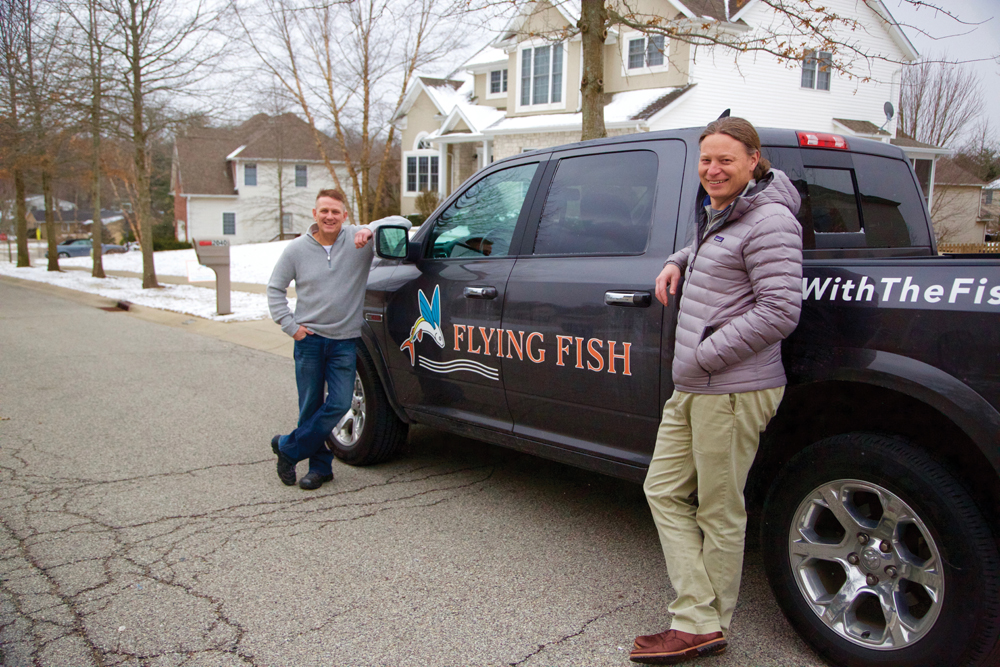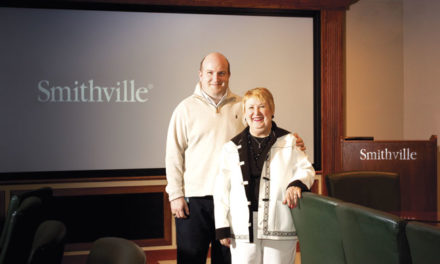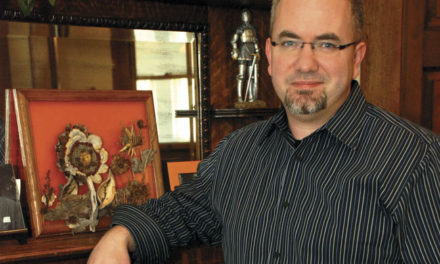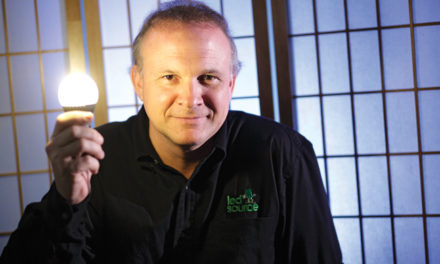
BY CRAIG COLEY
In January 2015, Chris Clark was running a real estate business that included rental properties, sales, and some remodeling. The business was doing fine, but not Clark. He was drinking too much, couldn’t stop, and was miserable. He sought help in a recovery community and began attending several meetings a day. One of the people he would see there was Jamie Donahue.
Clark had noticed Donahue riding a bicycle with a trailer containing carpentry tools. Donahue had been sober for four years, which to Clark seemed an impossible length of time, and he admired him.
Donahue’s life had been a mess. He had been homeless. Alcohol and drugs had destroyed a marriage and relationships with two children. His parents and siblings, “tired of watching me kill myself,” had disowned him. He had five felony convictions for driving under the influence and three for assault.
Originally from Indianapolis, he moved to Bloomington in 1998 to get clean, and for years bounced in and out of recovery, notching 14 stays at a residential recovery house. “I just thought I was never meant to be sober,” Donahue, 51, recounts.
In July, 2012, with the Indiana Department of Child Services preparing to take his third child, 1-year-old Kelly, Donahue made another attempt at sobriety. He worked a recovery program in earnest and had been sober two months when he was jailed for failing to pay child support to his ex-wife. There, in the Morgan County Jail, he saw his 19-year-old son, Daulton, locked up on a drug charge. Donahue tried to make amends for being an absent father. Daulton was released three weeks after Donahue, and within 12 hours was found dead of an overdose.
To the amazement of everyone—including himself—Donahue remained sober. He began meditating with a Buddhist monk from Thailand. “He was the one who helped me get to a point where I could quiet my monkey mind,” says Donahue, who has attention deficit hyperactivity disorder. “I felt responsible for my son’s death. The biggest part was forgiving myself.”
When Clark came into the same recovery program, Donahue was remodeling the Victoria Towers building at 221 E. Kirkwood, getting around by bicycle because he had lost his license to drive. Clark and Donahue met over coffee and meals and spoke openly about their lives. Donahue had once supervised as many as 90 workers on multimillion-dollar construction jobs.
Clark, 44, had always dreamed of designing and building but knew he couldn’t handle it while drinking. Donahue’s past aligned with Clark’s dream for a future, and the company now known as Flying Fish Design and Build was born.
Trusting Donahue to do estimates and lead crews, Clark could focus on design. The company has grown to 15 employees with six or seven jobs in progress at a time. Clark says that the principles he learned in recovery—especially honesty and accountability—guide the business. “I don’t lie, no matter how much it hurts, and that comes from recovery,” Clark says.
Donahue volunteers with Habitat for Humanity and is on the board of directors of New Hope for Families. His driving privileges reinstated, he drives a company truck and looks forward to Monday mornings. “Because of Chris, I have a career now, not just a job,” Donahue says. “I’d have never thought my boss would be my best friend.”












